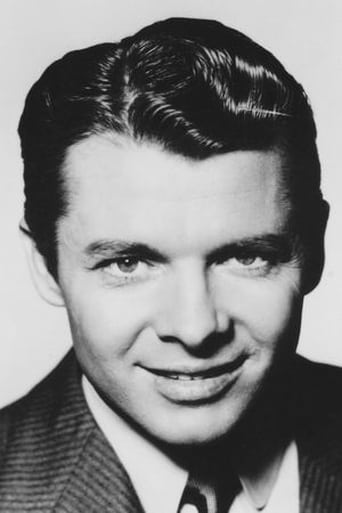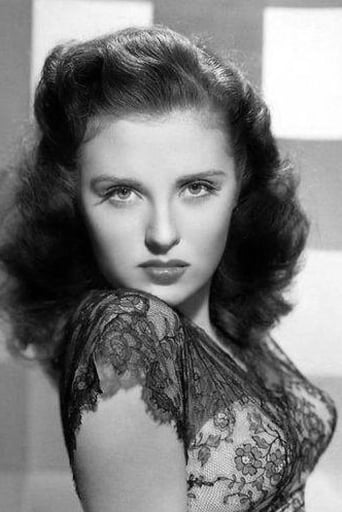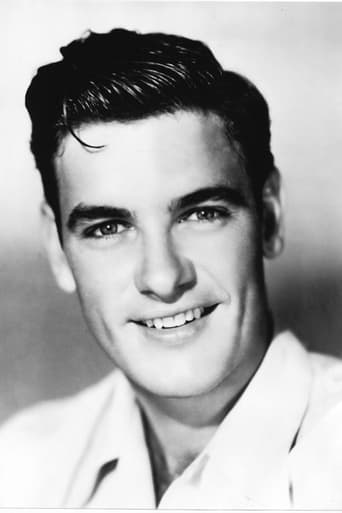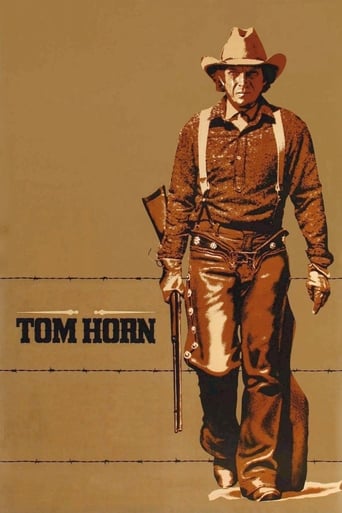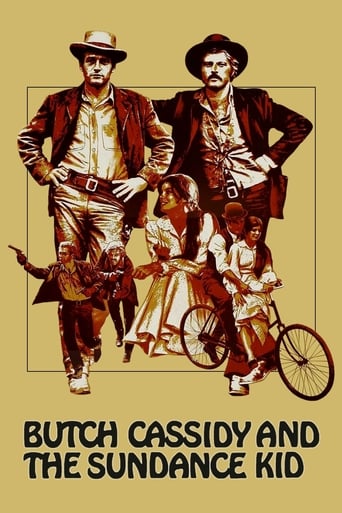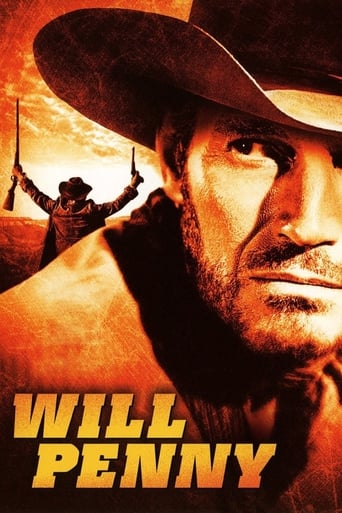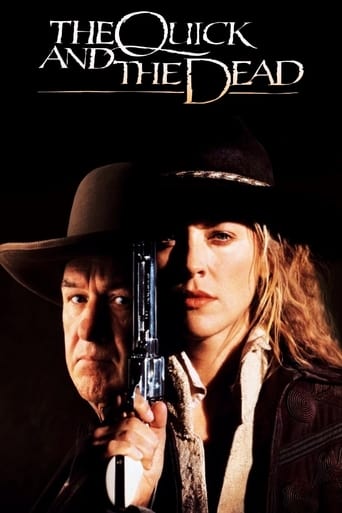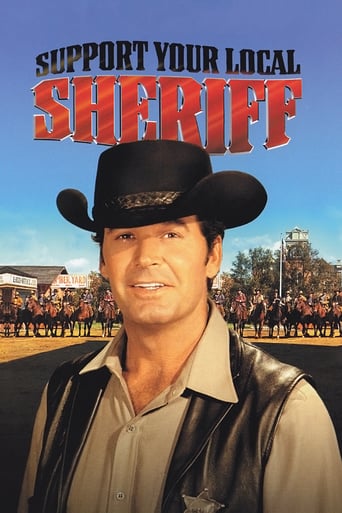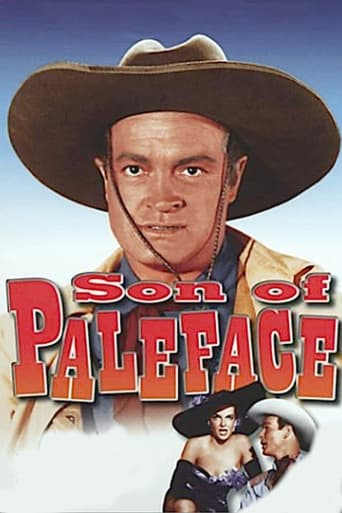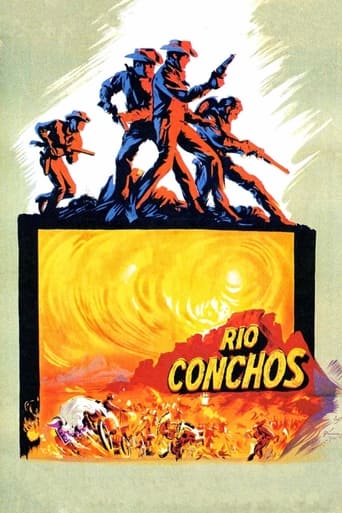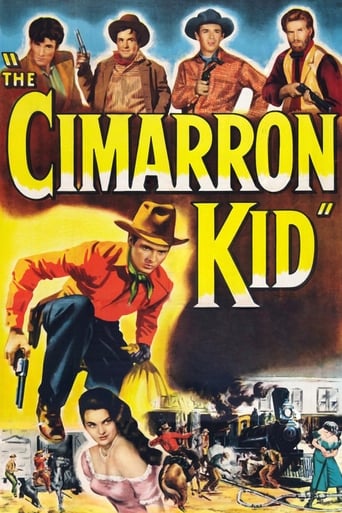
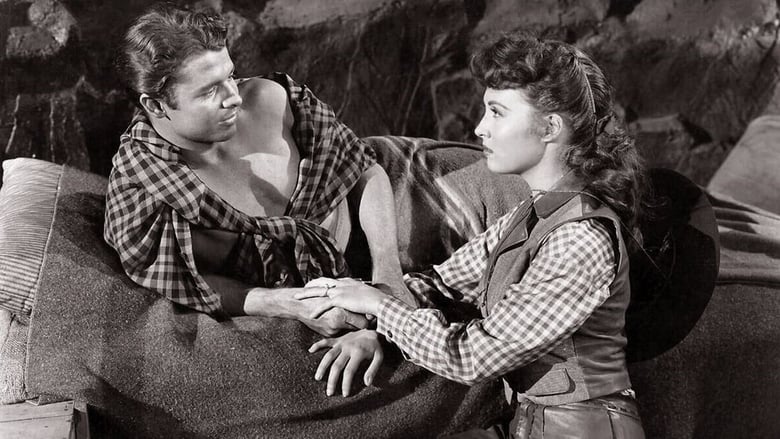
The Cimarron Kid (1952)
Audie Murphy comes into his own as a Western star in this story. Wrongly accused by crooked railroad officials of aiding a train heist by his old friends the Daltons, he joins their gang and becomes an active participant in other robberies. Betrayed by a fellow gang member, Murphy becomes a fugitive in the end. Seeking refuge at the ranch of a reformed gang member, he hopes to flee with the man's daughter to South America, but he's captured in the end and led off to jail. The girl promises to wait.
Watch Trailer
Cast
Similar titles
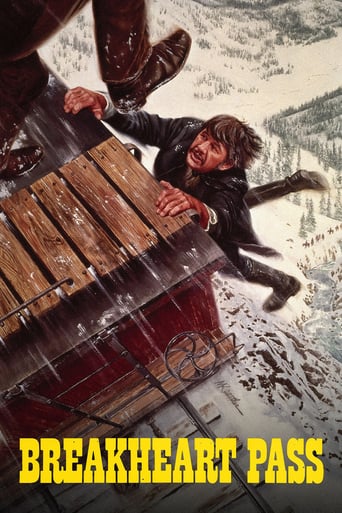
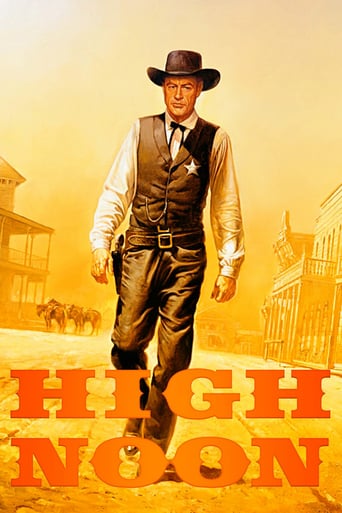
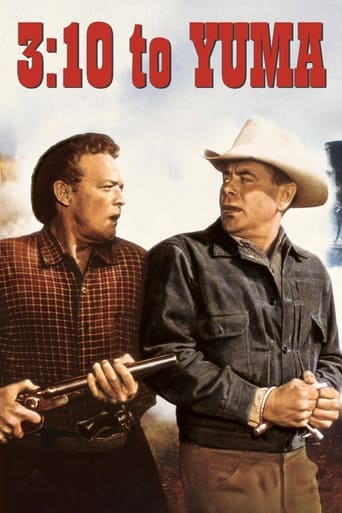
Reviews
Let's be realistic.
I like movies that are aware of what they are selling... without [any] greater aspirations than to make people laugh and that's it.
To all those who have watched it: I hope you enjoyed it as much as I do.
This movie tries so hard to be funny, yet it falls flat every time. Just another example of recycled ideas repackaged with women in an attempt to appeal to a certain audience.
The Cimarron Kid is a tightly-made, action-packed, very entertaining Western of the Oklahoma outlaws sub-genre. It is well directed by Bud Boetticher, generally well acted, pleasingly scored, and beautifully filmed in three-strip Technicolor. Costumes, gun leather, railroad equipment and sets are quite authentic looking for the late 19th century era. The the outdoor locations, though actually California, were well chosen to look suitably like Okieland. As an added bonus, there are lots of period railroad equipment, with a shootout in a rural roundhouse one of the rousing action scenes.There is not really much to find wrong is this little oat burner, except for Audie Murphy's awful acting. Let's face, a wooden cigar store Indian with a microphone implant could do little worse. But even that serious handicap is overcome by Boetticher's skillful direction and a creative script that concentrates on the interesting supporting cast of characters, especially Noah Berry, Jr.'s Bob Dalton, and the love relationship between Bitter Creek Dalton (James Best) and Cimarron Rose (Yvette Duguay). This device happily keeps the camera away from Murphy's frozen features for most of the screen time. Yvette Duguay, though only fourth-billed, actually steals the show as the outlaw gang's resourceful gun moll. Pretty, exotic, lively, and sexy, she is more interesting and appealing in every way than Audie's ho-hum love interest, second-billed Beverly Tyler. Good support is also contributed by veteran character actors Roy Roberts and Leif Erickson. Altogether a very satisfying little Western. Better than some of the bigger productions from the same early 1950's era and certainly superior to any of the pretentious plates of tripe passed off as Westerns today.
Parolee Audie Murphy violently resists a crooked district attorney's latest attempt to railroad him, based on his friendship to members of the notorious Dalton gang. Breaking parole, he ends up having to join the gang for real and becoming the new leader.Though not quite as good or well-written as director Budd Boetticher's later series of Randolph Scott pictures, The Cimarron Kid is still a fairly entertaining, muscular pulp-western, with Boetticher's usual flair for excellent photography.With his good looks, youthful appearance, and short stature (not to mention his hero status), I'm a little surprised at how many times Audie Murphy was given a chance to play an anti-hero (Night Passage, The Texican) or even a nasty villain (No Name On The Bullet). He's charming enough though, that the audience forgives the Cimarron Kid long before the law ever does.Noah Beery Jr. gives an amiable, though far-too-short performance as the fun-loving Bob Dalton, while a young James Best and Yvette Dugay are pretty good too as a fellow member of the gang and his beautiful, though savvy love interest.
This emerges as a pretty good example of the typical Audie Murphy Western vehicle though of lesser quality to the only one I had previously watched, NO NAME ON THE BULLET (1959) and, being Budd Boetticher's first Western, clearly a minor effort in his canon. Many films of this era treated (in a heavily romanticized manner) the exploits of famous outlaws of the Old West: Murphy appears as Bill Doolin and, at one point, he is told by the leader of The Dalton Gang that "They'll be writing ballads about us" and, sure enough, their exploits were later immortalized in music by the Country Rock band Eagles in "Doolin-Dalton", a song off of their second album "Desperado" (1973). Typically, Murphy is seen forced into a life of crime by circumstances or, more precisely, the persecution of a law-enforcement officer (while another, played by Leif Erickson, is more sympathetic to his plight). As ever, the gang is an eclectic assortment of characters: affable Noah Beery Jr. is their leader, Hugh O'Brian the red-headed hot-tempered challenger, James Best the ladies' man, Frank Silvera the half-breed, etc.; interestingly, we get a couple of romances going on (Murphy with the daughter of a man who shelters them and Best with a fiery Mexican girl) and the female characters are surprisingly strong for this type of film. Reassembling themselves in the wake of a bank hold-up gone awry (the film's best action sequence, climaxing in Beery's memorable come-uppance with the spilling coins a graphic substitution for blood), the gang is subsequently betrayed by the 'inside man' in a train robbery they try to pull off. Murphy is eventually persuaded to give himself up, with Erickson promising him a fair trial this time around. Shot in pleasant Technicolor, the generically-titled THE CIMARRON KID serves up compact, pacy and unpretentious entertainment perfect viewing after a hard day's work.
THE CIMARRON KID (1951) was one of about two dozen westerns Audie Murphy starred in at Universal Pictures in the period from 1950-1966. In brief, it tells the story of outlaw Bill Doolin who rode with the infamous Dalton gang in the disastrous raid on Coffeyville, Kansas, and went on to lead the gang's survivors in a subsequent robbery spree. A WWII hero-turned-movie star, Murphy plays Doolin as a misunderstood youth who gets forced into a life of crime through guilt by association and persecution by an overzealous railroad detective. Further complications ensue when Doolin falls in love with a rancher's daughter who wants him to go straight. The film was directed by western specialist Budd Boetticher who provides quite a number of interesting touches. One of the gang members, played by James Best, has a Mexican girlfriend, known as Cimarron Rose (Yvette Dugay), who is an equal participant in the action and is used to acquire information about payroll shipments and assorted robbery targets. The other major woman character, rancher's daughter Carrie Roberts (Beverly Tyler), is pretty strong and forthright on her own and makes no attempt to play coy in her meetings with Doolin. She even comes up with a plan to help him leave the outlaw life, but one which he rejects.Also, there is a significant black character, a man named Stacy (Frank Silvera) who provides support services for the gang, and who, while not actually a participant in their crimes, is dealt an equal share of the proceeds. There is a scene of him at home with his family--a wife and three children--that indicates his choice of a domestic life over an outlaw one, yet he is always treated with respect by the other men. The rest of the cast consists of a mixed bag of character actors like Noah Beery Jr., Leif Erickson, Roy Roberts, John Hubbard, and Rand Brooks, and up-and-coming Universal contract players: James Best, Hugh O'Brian, John Bromfield, John Hudson, William Reynolds, Palmer Lee (Greg Palmer). At times they threaten to crowd the soft-spoken, unassuming Murphy off the screen, but Audie ultimately manages to hold his own. Boetticher and Murphy would work together one more time on Murphy's last film, A TIME FOR DYING (1971), in which the actor has a cameo as Jesse James.
